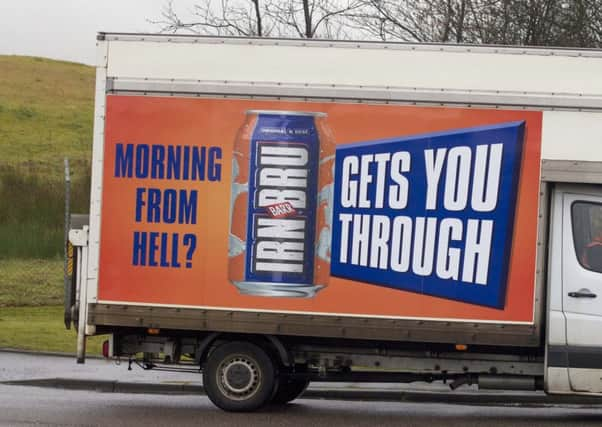Stephen Jardine: Ignore the fanatics over new Irn-Bru


The BBC has launched a new series predicting the end of the world. In Hard Sun, the authorities try to stifle news of the impeding doom to avoid pandemonium. Judging by the level of hysteria generated by a Scots company changing the contents of their fizzy drink, that’s a good strategy.
This week AG Barr stopped manufacturing full-sugar Irn-Bru, pointing out a shift in consumer preference towards low-sugar drinks. The company also said that based on extensive taste tests, it was confident customers wouldn’t notice the 50% reduction in sugar. On the basis of the first samples, they seem to be right. That should reassure the die-hard fans who rushed to Facebook to complain about changes to their beloved drink. Campaigns to save the full-sugar version were launched, a petition of protest attracted more than 40,000 names and some even resorted to stockpiling the old version. How could one of Scotland’s best-known brands have got it so wrong? The answer is they didn’t.
Advertisement
Hide AdAdvertisement
Hide AdWith its cheeky advertising campaigns, Irn-Bru has always set itself apart from its rivals. It has worked hard to win a reputation as Scotland’s other national drink. Scots really do believe it belongs to them. That makes any change problematic but it doesn’t make it wrong.
Coca Cola has taken the opposite approach to Irn-Bru in the face of Government action to reduce sugar consumption following soaring obesity rates. With a sugar tax looming, Coke has increased prices and reduced can size.
In contrast, AG Barr has made what looks like a responsible decision in the interests of the country. When the Government introduced compulsory wearing of seat belts, some complained it infringed their personal freedoms. The same voices popped up over drink-driving limits and the Irn Bru saga has again rattled their angry cages.
Railing against the so-called nanny state, they believe it should be their choice how they live their lives. If that means paying more for drinks laden with harmful sugar, so be it, they say. But what about the rest of us? With two-thirds of Scottish adults overweight and 29% clinically obese, our hard-pressed NHS is struggling. Doing nothing could make this epidemic situation worse.
Thankfully, apart from a few sugar-addled keyboard warriors, the rest of us seem to get it. According to the Scottish Social Attitudes Survey, 82% backed measures to make the food they like better for them, and 62% supported a tax on sugary soft drinks. That’s good news for the Government and should embolden them to do more to tackle what is bad for our health. It also shows AG Barr they have chosen the correct course, doing what is right for the customers even if rivals choose a different course of action. When the smoking ban was introduced, 20% of smokers threatened to defy it. Thirteen years on, smoking in bars and on public transport is unthinkable and deaths linked to tobacco are down. Time will also heal the fury of the Irn Bru fanatics. At worst, a few might think it tastes a bit different. At best the nation’s health will improve. That would be phenomenal.